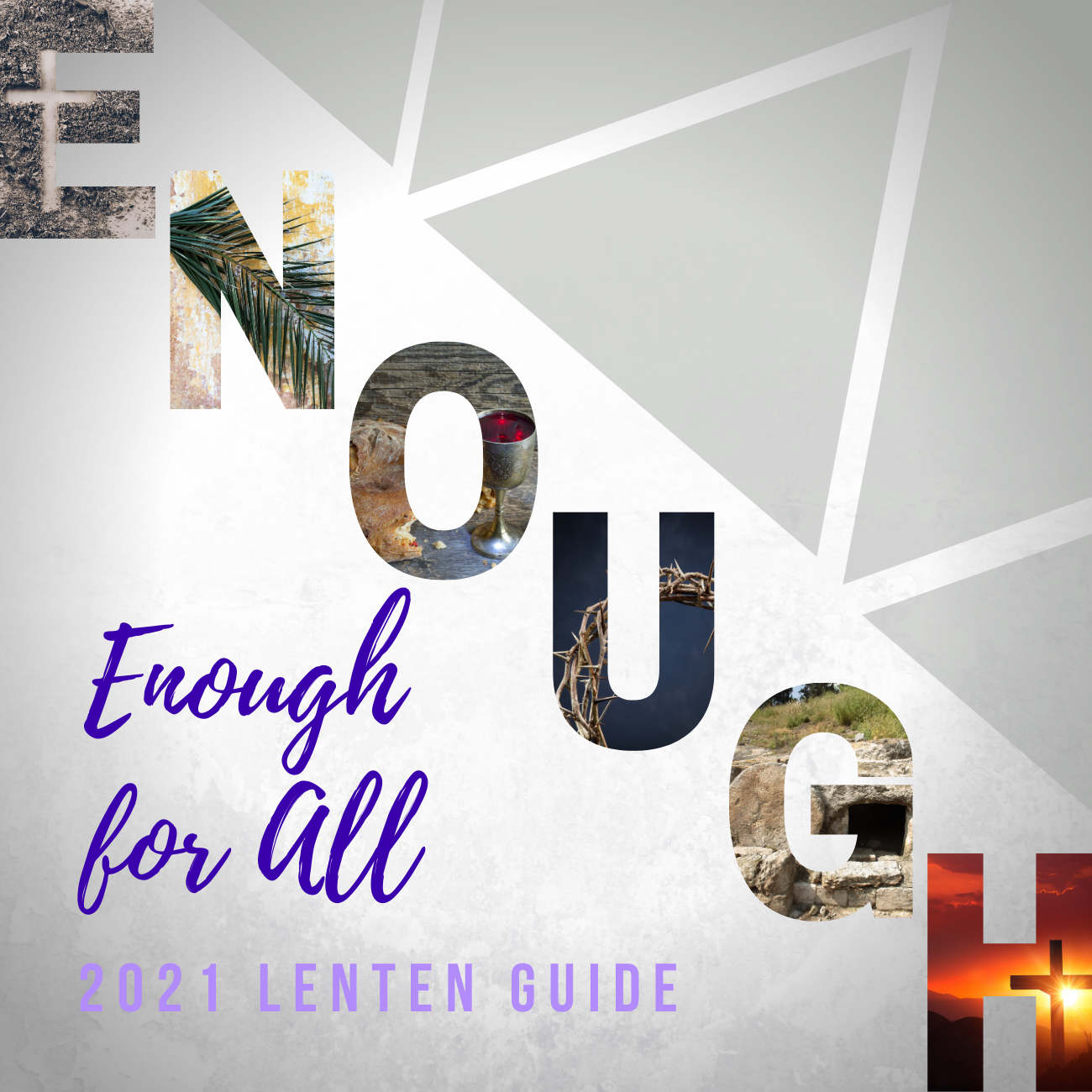Excerpted from Enough for All, a Lenten Guide for Lectionary Year B from the North Carolina Council of Churches.
Acts 10:34-43
Then Peter began to speak to them: ‘I truly understand that God shows no partiality, but in every nation anyone who fears him and does what is right is acceptable to him. You know the message he sent to the people of Israel, preaching peace by Jesus Christ—he is Lord of all. That message spread throughout Judea, beginning in Galilee after the baptism that John announced: how God anointed Jesus of Nazareth with the Holy Spirit and with power; how he went about doing good and healing all who were oppressed by the devil, for God was with him. We are witnesses to all that he did both in Judea and in Jerusalem. They put him to death by hanging him on a tree; but God raised him on the third day and allowed him to appear, not to all the people but to us who were chosen by God as witnesses, and who ate and drank with him after he rose from the dead. He commanded us to preach to the people and to testify that he is the one ordained by God as judge of the living and the dead. All the prophets testify about him that everyone who believes in him receives forgiveness of sins through his name.’
According to Peter, all the prophets told Israel what to look for—look for peace; look for justice; look for righteousness. The faithful watch and wait for hundreds of years, probably 500 years, maybe more. The faithful tell stories about the God who delivered them from slavery, the God who made them into the People of God. The faithful tell stories about rulers who abused their power bringing about destruction of the great nation, because no nation can be great that denies access to healthcare and allows people to go to bed hungry. The United States is certainly not the first powerful nation to make that mistake; only the most recent. The faithful come to understand that greatness is about more than being in charge and amassing wealth.
It takes them hundreds of years to learn to think this way and still everybody doesn’t get it, even when Jesus embodies exactly what the prophets said to look for: peace, justice, righteousness. Jesus preaches and teaches, he feeds and heals. First people noticed him, then people listened to him, and then people started following him. Now we’ve got a bit of a movement on our hands, always a threat to the authorities and to those who have amassed wealth. The story picks up steam until, in Peter’s words, “they put him to death by hanging him on a tree.” Many who stand for peace, justice, and righteousness, die doing so.
But that’s not the end of Peter’s story. He goes on, “God raised him on the third day and allowed him to appear, not to all the people, but to us who were chosen as witnesses.” Resurrection appearances are belief confirmations for those who risked everything pursuing peace, justice, and righteousness. And for those who are ready to embrace that truth, Peter says: “Everyone who believes in [Jesus] receives forgiveness of sins through his name.” This is the linchpin Peter offers to Cornelius and by extension to us. There’s little dispute that Jesus lived and died. There’s little dispute he did some fine work and provided good teaching. But to say we are forgiven by believing in him makes some very specific claims about Jesus and about us.
For starters we’re claiming Jesus is God with us. He is the proof of God’s love, God’s willingness to say to God’s creation, I love you enough to become one of you. I love you enough to be born (most vulnerable moment in any creature’s life) and I love you enough to die (most frightening moment in any sentient being’s life).
When we are vulnerable, we are selfish. When we are afraid, we are violent. Jesus shows us there is no need for these sins in the kin-dom of God, because he has been both vulnerable and afraid without becoming selfish and violent—without sinning. Think of all the tributaries that run into the rivers of greed and fear and how different our lives would be without them.
Peter is telling Cornelius, and us, there is another way to live. This forgiveness is far more profound than confessing a laundry list of personal misdoings. This is forgiveness that reorients our entire way of seeing the world. It can take an entire lifetime to learn to live this way, to live without greed and fear, but Peter says we are capable of doing it. Cornelius is ready to start. May we all be so eager to start afresh living the commitment that defines our belief, “…everyone who believes in him receives forgiveness of sins.” And then there will be enough.

